Armed With Such [linguistic] Knowledge, Teachers Could Impart Grammar Not As An Onslaught Of Desiccated
Armed with such [linguistic] knowledge, teachers could impart grammar not as an onslaught of desiccated definitions or things to underline, but puzzles to solve. Why does “She destroyed” not feel like a full sentence? (That allows the introduction of concepts such as “direct object”.) How does Shakespeare use “do” differently from modern writers? (Here you can sneak in historical linguistics.) Where might you hear “we was” instead of “we were”? (This can introduce class, dialect and situational appropriateness.) One study found that adding this kind of analysis—albeit in foreign-language classes, not English—made almost 60% of the pupils want to learn more linguistics, particularly language history. Meanwhile the “Linguistics Olympiad” is a popular extra-curricular contest that instils linguistic thinking; perhaps everyone should take part.
The agony and the ecstasy of grammar (via allthingslinguistic)
More Posts from Littlelanguagefox and Others
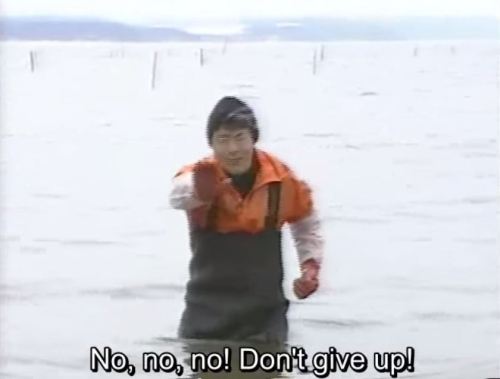
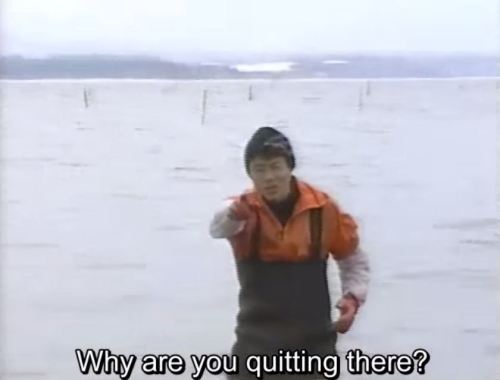
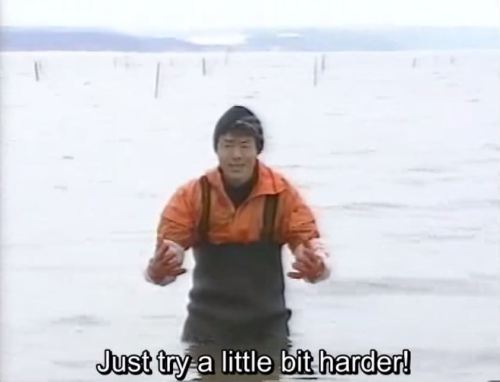
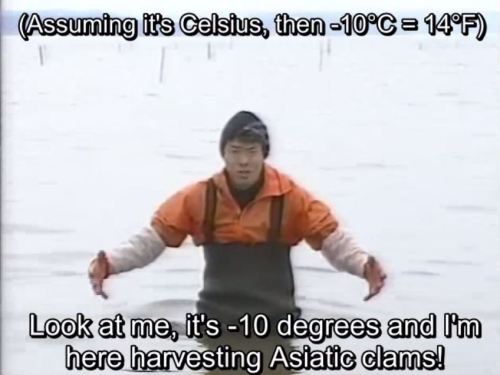
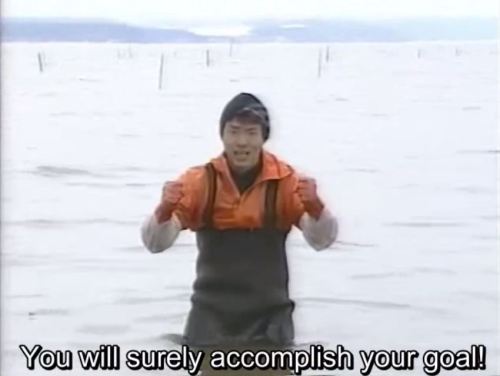
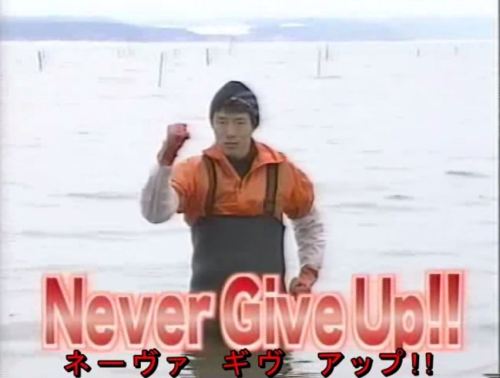
Expressing your opinions (Spanish)
for: @91silk
Sentence starters:
It seems to me that …- A mí me parece que …
In my opinion, …- En mi opinión, …
I am of the opinion that …- Soy de la opinión de que …
I take the view that …- Soy de la opinión de que …
My personal view is that …- Mi opinión personal es que …
In my experience …- En mi experiencia …
As far as I understand…- Por lo que yo entiendo …
As far as I can see…- Por lo que yo puedo ver …
As I see it, …- Como yo lo veo, …
From my point of view…- Desde mi punto de vista …
As far as I know…- Por lo que yo sé …
From what I know …- Por lo que sé …
I might be wrong but …- Puedo estar equivocado, pero …
If I am not mistaken …- Si no me equivoco …
I believe one can safely say …- Creo que se puede decir con seguridad …
It is claimed that …- Se dice que …
I must admit that …- Tengo que admitir que …
I cannot deny that …- No puedo negar que …
I can imagine that …- Me imagino que …
I think/believe/suppose …- Creo / creo / supongo …
Personally, I think …- Personalmente, creo que …
That is why I think …- Es por eso que creo que …
I am sure/certain/convinced that …- Estoy seguro / seguro / convencido de que …
I am not sure/certain, but …- No estoy seguro / seguro, pero …
I am not sure, because I don’t know the situation exactly.- No estoy seguro, porque no conozco la situación exacta.
I am not convinced that …- No estoy convencido de que …
I have read that …- He leído que …
I am of mixed opinions about …- Tengo una opinión mixta sobre …
I am of mixed opinions about on this.- Tengo opiniones variadas sobre esto…
I have no opinion in this matter.- No tengo ninguna opinión al respecto.
I believe that…- creo que…
I think that…- pienso que…
I think that…- opino que…
I think that…- me parece que…
Questions:
what do you think about…?/ what’s your opinion about…?- ¿Qué opinas de…?
what do you believe about…?- ¿Qué crees de…?
what do you think about…?- ¿Qué piensas de…?
what do you think about…?- ¿Qué te parece…?
Useful Phrases:
I like- me gusta
I prefer- prefiero
I love- me encanta
I don’t like- no me gusta
odio- I hate
detesto- I hate
de acuerdo- alright
vale- okay, fine
estoy de acuerdo- I agree
no estoy de acuerdo- I do not agree
de ninguna manera- no way
Adjectives that can be useful when giving your opinion:
Aburrido/a-Boring
Afortunado/a-Lucky
Antiguo/a-Old
Barato/a-Cheap
Bueno/a-Good
Caro/a-Expensive
Decepcionante-Disappointing
Desagradable-Unpleasant
Difícil-Difficult
Distincto-Different/distinct
Duro/a-Hard/difficult
Emocionante-Exciting
Entretenido/a-Entertaining
Espléndido/a-Splendid
Estúpido/a-Stupid
Extraordinario/a-Extraordinary
Famoso/a-Famous
Fascinante-Fascinating
Favorable-Favourable
Fenomenal-Great
Genial-Brilliant/great
Horroroso/a-Terrible/awful
Importante-Important
Impresionante-Amazing/incredible
Inseguro/a-Insecure
Inútil-Useless
Malo/a-Bad
Moderno/a-Modern
Nuevo/a-New
Posible-Possible
Precioso/a-Lovely/beautiful
Profundo/a-Deep/profound
Regular-Regular/average
Seguro/a-Sure/secure
Sorprendido/a-Surprised
Tonto/a-Silly/stupid
Único/a-Unique/only
Aceptable-Acceptable
Agradable-Pleasant
Apropiado/a-Suitable
Bonito/a-Pretty
Decepcionado/a-Disappointed
Desafortunadamente-Unfortunately
Diferente-Different
Divertido/a-Fun/entertaining/funny
Económico/a-Economical
Encantador-Charming/delightful
Especial-Special
Estupendo/a-Great
Excelente-Excellent
Fácil-Easy
Fantástico/a-Fantastic
Fatal-Awful
Favorito/a-Favourite
Feo/a-Ugly
Hermoso/a-Beautiful/lovely
Ideal-Ideal
Imposible-Impossible
Increíble-Incredible
Interesante-Interesting
Malo/a-Bad
Maravilloso/a-Marvelous/wonderful
Negativo/a-Negative
Perfecto/a-Perfect
Positivo/a-Positive
Preferido/a-Preferred/favourite
Raro/a-Strange
Ridículo/a-Ridiculous
Sencillo/a-Simple/modest
Típico/a-Typical
Tranquilo/a-Quiet/calm
Útil-Useful
Viejo/a-Old
Agreeing politely
¡Totalmente! — Totally!
Estoy (completamente/totalmente) de acuerdo — I (completely/totally) agree
Estoy contigo — I’m with you on that
Por supuesto — Of course!
Tienes razón — You’re right
Disagreeing politely
No estamos de acuerdo — I don’t agree with you
No lo veo (tan) así — I don’t (really) see it like that
No creo — I don’t think so
Saying you’re unsure or showing partial agreement
Estoy de acuerdo hasta un cierto punto — I agree with you up to a point
Tal vez, pero… — Maybe, but…
No estoy muy segura/o — I’m not really sure
Nunca lo pensé — I’ve never thought about it
No tengo la menor idea — I have no idea
If there’s any questions about any of this, let me know!
Writing a job application in French!
Monsieur / Madame – dear sir / madam
Aux principaux concernes – to whom it may concern
Je souhaite poser ma candidature pour le poste de... – I would like to apply for the position of…
Je travaille actuellement pour… – I currently work for…
Je suis diplômé / diplômée en… – I am a graduate in…
Mes qualités principales sont… – my strengths are…
Mon domaine d'expertise est… – my area of expertise is…
Ma langue maternelle est… – My first language is…
Mais je parle aussi… – but I also speak…
J'ai une connaissance pratique de… – I have a working knowledge of…
Je suis un utilisateur confirmé de… – I am an experienced user of…
Je suis disponible pour un entretien le... – I am available for an interview on…
Veuillez agréer, Monsieur / Madame – Yours sincerely,
Capacité de communication – communication skills
Capacité de créativité – creative skills
Capacité d'encadrement – management skills
Capacité à résoudre les problemes – problem solving skills
Capacité à prendre la parole en public – public speaking skills
Compétences en organisation – organisational skills
Motivé / motivée - motivated
Travailleur / travailleuse – hardworking
Un CV – A CV
Une lettre de motivation – A cover letter
Une candidature à un emploi – A job application
The Last - Agust D
주소 - Address
화장실 - Bathroom, Washroom
갈등 - Conflict
일상 - Daily life, Everyday life
우울증 - Depression
꿈 - Dream
친구 - Friend
욕심 - Greed
기요틴 - Guillotine
머리 - Head
주저 - Hesitation
아이돌 - Idol
상상 - Imagination
인생 - Life
기억 - Memory
정신 - Mentality, Mind
괴물 - Monster
강박 - OCD
자신 - Oneself
부모님 - Parents
오염 - Pollution
자존심 - Pride, Self-respect
정신과 - Psychiatry clinic
랩퍼 - Rapper
현실 - Reality
롤렉스 - Rolex
근원 - Root, Cause
잠 - Sleep
가끔 - Sometimes
성공 - Success
시간 - Time
도쿄돔 - Tokyo Dome
누구 - Who
걱정 - Worry
청춘 - Youth
How I prepped for the academic job market

I am by no means an expert on academic jobs just because I now (miraculously?) have one. But I have been told that I am organized, and, yes, that is because being an anxious person sometimes means having a system for everything. So before I totally bury all memories of the academic job market, I thought I would put together a timeline of some of the things I did to get ready to search for academic jobs…
My to-do list started very informally in the first year of my PhD program. I know that sounds over-the-top-early but the job market takes a lot of work. Checking things off one at a time helped me to feel in control. Here’s how I prepared for the academic job market as a PhD student:
Year 1
Do research that excites you: Enthusiasm for my research ended up being my momentum through a lot of the hard stuff that came later. Try to set yourself up to do the research that you want to do right away. This might include some trial-and-error and trying out different topics until you find the one.
Read The Professor is In: My MA advisor insisted I read this the summer before I started the PhD and, as always, she was totally right. When I told other grad students I had read a book about how tough the job market is they either said “I don’t need to read that yet” or “I don’t want to know how bad it is.” Ummmm…denial is not a good strategy. Knowing what you’re getting into is a good strategy. Even though the information about prepping job market materials was not yet relevant, having a framework for what would be evaluated helped me to define my grad school goals.
Year 2
Write papers that help you figure out your research area: I was pretty bad at this in my MA (I wrote papers about everythingggg). It’s ok to spend some time exploring topics, but once I had a topic area, I tried to use grad seminar papers to narrow in on that topic. This involved writing some papers that ended up being duds, and some that ended up being important parts of my dissertation. This leads to…
Ask about publishing: In seminars, I tried to have meetings with professors where I told them I wanted an academic job and needed experience publishing. They were usually willing to help develop seminar papers that had (somewhat?) original arguments in them, which is necessary for publishing. I was also not afraid to ask for lots of publishing help–how does it work? where should I submit this? can I use a cover letter you have written as a template? Publishing is confusing and took me a while to get used to.
Network smarter, not harder: This was the year I realized that going to giant conferences and hoping to meet people who did similar things was just not working. I reassessed and submitted to several smaller conferences that had the explicit goal of having senior faculty mentor grad students. It was amazing! First, these conferences were genuinely helpful, second, they were genuinely…genuine. I didn’t feel that I had to do any super fake networking anymore because I was really there to have conversations that developed my research.
Year 3
Read job postings: If your discipline has a listserv, subscribe, if not, check out the InsideHigherEd job postings. Note any trends in hiring. I don’t think you can totally pivot toward every job (duh) but you can think about how to make your application more friendly to what everyone seems to want. In my case, people who teach organizational communication were often also being asked to teach several other classes, so I made sure to ask to teach one of those so it would be on my record before the job market.
Submit, submit, submit: This is the year I got the most journal submissions under review. Some got accepted, some got (mega) rejected. Most needed several rounds of hardcore revisions that took 12-14 months. Submitting in year 3 gave me time to do those revisions so that I could use the articles as writing samples on applications.

Year 4
Prep materials: I drew on as many resources as possible to prep my job market materials–career services helped with my CV, our graduate teaching program on campus helped me writing my teaching and diversity statements, I asked recent graduates for example cover letters, my advisor read and edited cover letters, my DAD read and edited cover letters (what can I say he loves helping with grammar). It takes a village. Use the village. Oh, now is also a good time to reread TPII book for tips on writing decent materials.
Get organized: I had a spreadsheet where I put all of the relevant job information, especially deadlines, keywords, and information about each department.
Ask your letter writers: I did this in August. I also made them all a “job application digest”–just a word document with all of the jobs I submitted to and some notes about what I had said in my cover letter, so they could tailor rec letters.
Throw yourself at your dissertation: Every interview asked how I was planning to finish the dissertation. Making real progress made this question much easier. I definitely lost myself to the job market for a solid month in November. Then, I realized that my dissertation was the only thing I had control over. So I got back to work.
And here are some other resources that I also enjoyed reading:
Thoughts on diversity statements: What the heck even are they?, plus thoughts on the hidden curriculum of college and designing inclusive teaching on campus (Ps don’t just use these to write a diversity statement use them to actually do work in your classroom and campus environment so that what you write on your diversity statement is genuine).
A breakdown on cover letters
Another great post on the job hunt
Campus visit small talk
This post originally appeared on my WordPress
academia is 50% crying, 20% research, and 30% coming up with funny titles for every paper that you write
KOREAN LEARNING MASTERLIST:
originally a quick bookmark that became a comprehensive, work-in-progress, reblog-able masterlist of all korean posts i’ve made and come across on tumblr, ordered by topic/theme. last updated: 04/05/2019
VOCABULARY:
Time + Space:
eojetbam-studies: five a day #21 — time related vocab
eojetbam-studies: position in korean 어디에 있어요?
eojetbam-studies: countries in korean — 어느 나라 사람이에요?
eojetbam-studies: days of the week
koreanstudytips: frequency adverbs
dailydoseofkorea: korean geographic vocab
Relationships:
eojetbam-studies: family in korean — 우리의 가족
Nouns:
koreanstudytips: animals in korean
eojetbam-studies: five a day #3 — thanksgiving related vocab
Adjectives:
eojetbam-studies: colors in korean — 한국어에 색들이
Verbs:
jesslearnslanguages: 25 common korean verbs
19tc: to like/to dislike
patroocle: sleep related vocab
Internet:
patroocle: on the internet
GRAMMAR:
Particles / Attached Endings:
learn-korean-with-alli: object particle 를/을
adventuresinkorean: contrastive ending (으)나
yasuistudies: future tense and probability (으)ㄹ 거예요
Taking Action:
koreanstudytips: let’s in korean
Negatives:
koreanstudytips: how to say don’t in korean
Other Grammar:
h-eonno: korean sentence structure
OTHER:
Honorifics:
koreanstudytips: 존댓말 vs. 반말
Just knocked out a first draft of my first ever academic CV. Is this what productivity feels like?
cute things // cosas adorables
teddy bear - osito de peluche (m.)
angel - ángel (m.)
bee - abeja (f.)
butterfly - mariposa (f.)
dew - rocío (m.)
pond - balsa (f.) / estanque (m.)
kitten - gatito / gatita
orchard - huerto (m.)
snowfall - nevada (f.)
field - campo (m.)
mist - neblina (f.)
teacup - taza de té (f.)
dusty book - libro polvoriento (m.)
duckling - patito / patita
cotton - algodón (m.)
hug - abrazo (m.)
bouquet - ramo (m.)
enchanted - encantado
ethereal - etéreo
shimmering - reluciente
sweet - dolce
to cuddle - abrazarse
to blossom - florecer
to daydream - soñar despierto
to caress - acariciar
to hum - tararear
to whisper - susurrar
to giggle - reírse
It’s been a while, y’all.
I’m in that twilight zone between graduation and graduate school. So applying for jobs is like: Hi I want to work for you but only for like a year so hope you don’t hate me.
Luckily, there is going to be a graduate school fair near me soon so I can talk to actual humans in person about my choices.
Just had to get that out there. Love y’all and hope whatever kind of day you’re having gets better!
-
 onewugtwowug reblogged this · 4 years ago
onewugtwowug reblogged this · 4 years ago -
 aliesdaliance reblogged this · 5 years ago
aliesdaliance reblogged this · 5 years ago -
 astroqirl liked this · 5 years ago
astroqirl liked this · 5 years ago -
 my-darling-eggsy liked this · 5 years ago
my-darling-eggsy liked this · 5 years ago -
 sgtbanana1337 liked this · 5 years ago
sgtbanana1337 liked this · 5 years ago -
 yearningforyourrage reblogged this · 5 years ago
yearningforyourrage reblogged this · 5 years ago -
 chambaeli reblogged this · 5 years ago
chambaeli reblogged this · 5 years ago -
 neechollayy liked this · 5 years ago
neechollayy liked this · 5 years ago -
 dmidmitrich liked this · 5 years ago
dmidmitrich liked this · 5 years ago -
 myfirstusernamewastaken liked this · 5 years ago
myfirstusernamewastaken liked this · 5 years ago -
 haveahearttinman reblogged this · 5 years ago
haveahearttinman reblogged this · 5 years ago -
 haveahearttinman liked this · 5 years ago
haveahearttinman liked this · 5 years ago -
 t4tmetalsonic liked this · 5 years ago
t4tmetalsonic liked this · 5 years ago -
 kirarahu liked this · 5 years ago
kirarahu liked this · 5 years ago -
 apll3z liked this · 5 years ago
apll3z liked this · 5 years ago -
 rivergirl123 liked this · 5 years ago
rivergirl123 liked this · 5 years ago -
 boys-latin2 reblogged this · 5 years ago
boys-latin2 reblogged this · 5 years ago -
 bipenis reblogged this · 5 years ago
bipenis reblogged this · 5 years ago -
 bipusssy reblogged this · 5 years ago
bipusssy reblogged this · 5 years ago -
 bipusssy liked this · 5 years ago
bipusssy liked this · 5 years ago -
 almost-always-eventually-right reblogged this · 5 years ago
almost-always-eventually-right reblogged this · 5 years ago -
 aliceinboringland liked this · 5 years ago
aliceinboringland liked this · 5 years ago -
 plasticsimplicity liked this · 5 years ago
plasticsimplicity liked this · 5 years ago -
 breadsticksandgarlictoast reblogged this · 5 years ago
breadsticksandgarlictoast reblogged this · 5 years ago -
 birdsinatrenchcoat reblogged this · 5 years ago
birdsinatrenchcoat reblogged this · 5 years ago -
 gnnnne liked this · 5 years ago
gnnnne liked this · 5 years ago -
 aprilsoul liked this · 5 years ago
aprilsoul liked this · 5 years ago -
 januariat reblogged this · 5 years ago
januariat reblogged this · 5 years ago -
 seabed-shims reblogged this · 5 years ago
seabed-shims reblogged this · 5 years ago -
 reynard61 liked this · 5 years ago
reynard61 liked this · 5 years ago -
 lightningspiral liked this · 5 years ago
lightningspiral liked this · 5 years ago -
 dvandom reblogged this · 5 years ago
dvandom reblogged this · 5 years ago -
 ununnilium reblogged this · 5 years ago
ununnilium reblogged this · 5 years ago -
 ununnilium liked this · 5 years ago
ununnilium liked this · 5 years ago -
 omorka liked this · 5 years ago
omorka liked this · 5 years ago -
 moontyger reblogged this · 5 years ago
moontyger reblogged this · 5 years ago -
 czkavka liked this · 5 years ago
czkavka liked this · 5 years ago -
 desmothene liked this · 5 years ago
desmothene liked this · 5 years ago -
 drifting-knightjar liked this · 5 years ago
drifting-knightjar liked this · 5 years ago -
 raindragonwing reblogged this · 5 years ago
raindragonwing reblogged this · 5 years ago -
 leitharstjarna reblogged this · 5 years ago
leitharstjarna reblogged this · 5 years ago -
 mothmans-pillowy-soft-bulge reblogged this · 6 years ago
mothmans-pillowy-soft-bulge reblogged this · 6 years ago -
 mothmans-pillowy-soft-bulge liked this · 6 years ago
mothmans-pillowy-soft-bulge liked this · 6 years ago -
 nafsayati liked this · 6 years ago
nafsayati liked this · 6 years ago -
 fluttervee reblogged this · 6 years ago
fluttervee reblogged this · 6 years ago
